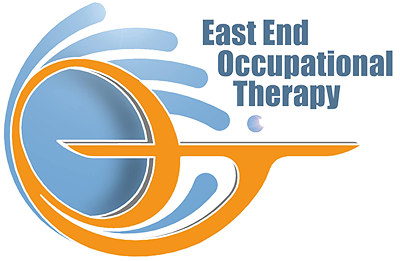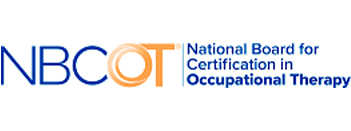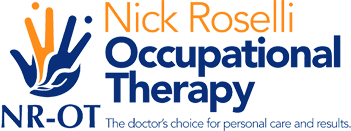Hand Therapy in Amityville
Our Mission
The mission of East End Occupational Therapy is to provide our patients with compassionate and skilled Hand therapy in Amityville as well as the, wrist, forearm, elbow and shoulder as we tailor individualized treatment plans to help improve quality of life.

East End Occupational Therapy is a specialized hand and upper extremity rehabilitation practice that has been dedicated to providing a complete and comprehensive range of occupational therapy services to its patients. The team at East End Occupational Therapy strives to deliver the best evidence based care possible through our client centered approach. Contact us for caring and dedicated Hand therapy in Amityville.
Not only is our practice in direct contact with your physician from the initial examination through your discharge, we also work closely with your surgeon to develop an optimal plan of care with the goal of restoring your functional independence. Most of us rely on our hands routinely and it is not until we suffer an injury that we recognize the importance of our hand function when performing daily living skills.
Why Would I Go To Hand Therapy?
Many treatments for hand injuries involved some sort of hand therapy. Occupational therapy can help reduce strain on your joints and show you ways that can reduce pain in doing everyday activities. Hand therapy in Amityville’s main goal is to get you back to performing your daily activities without significantly less pain. Hand therapists in Amityville will look at your injury or condition and will determine the best possible treatment we can provide for you to elevate your symptoms.
Physical Therapist VS. Occupational Therapist
Physical Therapy can help you with
- Relieve pain
- Improvement movement
- Recover from injury/ surgical procedure
- Joint conditions (Osteoarthritis, rheumatoid arthritis)
- Improve balance
- Manage chronic pain
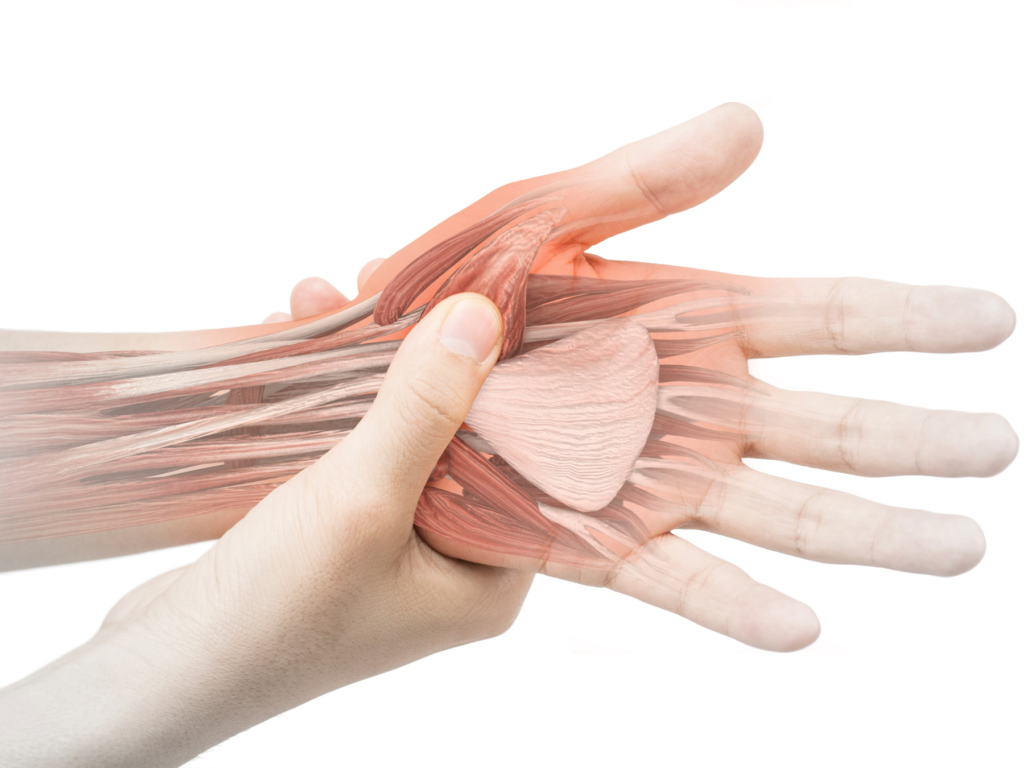
Physical Therapy starts with asking a series of questions regarding your injury or condition. After they get an understanding of your medical history, symptoms, and what causes them pain, they will work with you to create a treatment plan that will help you achieve the goals you have for physical therapy. Hand therapy treatment in Amityville can include
- Targeted Exercises
- Stretches
- Massage & heat therapy
- Rehabilitation
- Help with the use of canes and walkers if necessary.
If you have a hand injury or condition, you may decide to see an occupational therapist here in Amityville. Occupational therapists can help you
- Learn how to perform daily task
- Find ways to help you achieve your daily task easier
- Helping with tasks that involve fine motor skills
- Exercises to help you increase flexibility or reduce pain
Oftentimes, people are conflicted about whether they should see a physical therapist or an occupational therapist. Suppose you have a condition that affects your ability to move without pain, then a physical therapist may be the right choice. A Physical therapist will work with you to reduce your pain and gain back your strength and mobility using exercises and stretches. On the other hand, occupational therapists can work with you if you are having trouble performing your daily activities because of your hand injury/condition. Both occupational and physical therapists have similarities and are both here to help with your conditions. Still, some minor differences are important to note to find which therapist is right for you. To determine which therapist is best for you, talk with your doctor to decide which one is better suited for you.
What Are Common Hand Injuries?
People often seek hand therapy here in Amityville for a variety of reasons. Let’s look at some of the most common hand injuries.
Tendonitis
Tendonitis often causes pain on the wrist’s thumb side and can travel up the thumb and into the forearm. It is usually caused by overuse and repetitive activities used by the hand. Tendonitis pain can start suddenly or gradually get worse as time goes on. Symptoms of tendonitis may include:
- Pain making a fist
- Pain grasping or holding objects
- Pain when turning the wrist
In cases like this, the treatment for tendonitis can include a splint for the thumb and wrist, anti-inflammatory medication, and cortisone shots.
Carpal Tunnel Syndrome
One of the most common Hand injuries is Carpal Tunnel. Carpal Tunnel is a common nerve disorder of the hand. The pain is usually found in the palm, fingers, wrist, and forearm and often gets worse at night. Those with carpal tunnel syndrome find it hard to grip objects because it can cause weakness within the hand. The Carpal tunnel starts when there is swelling in the median nerve. The Median Nerve is what controls the sensation and muscle impulse within the hand. When the median nerve becomes inflamed, it begins to irritate the tendons that can cause tingling, numbness, and pain. Treatments for Carpal Tunnel include anti-inflammatory medication, wrist splints, rest, steroid shots, and physical therapy.
Hand Fracture
Hand Fractures are a break in the bone that can cause a lot of hand pain. Symptoms of a hand fracture may include
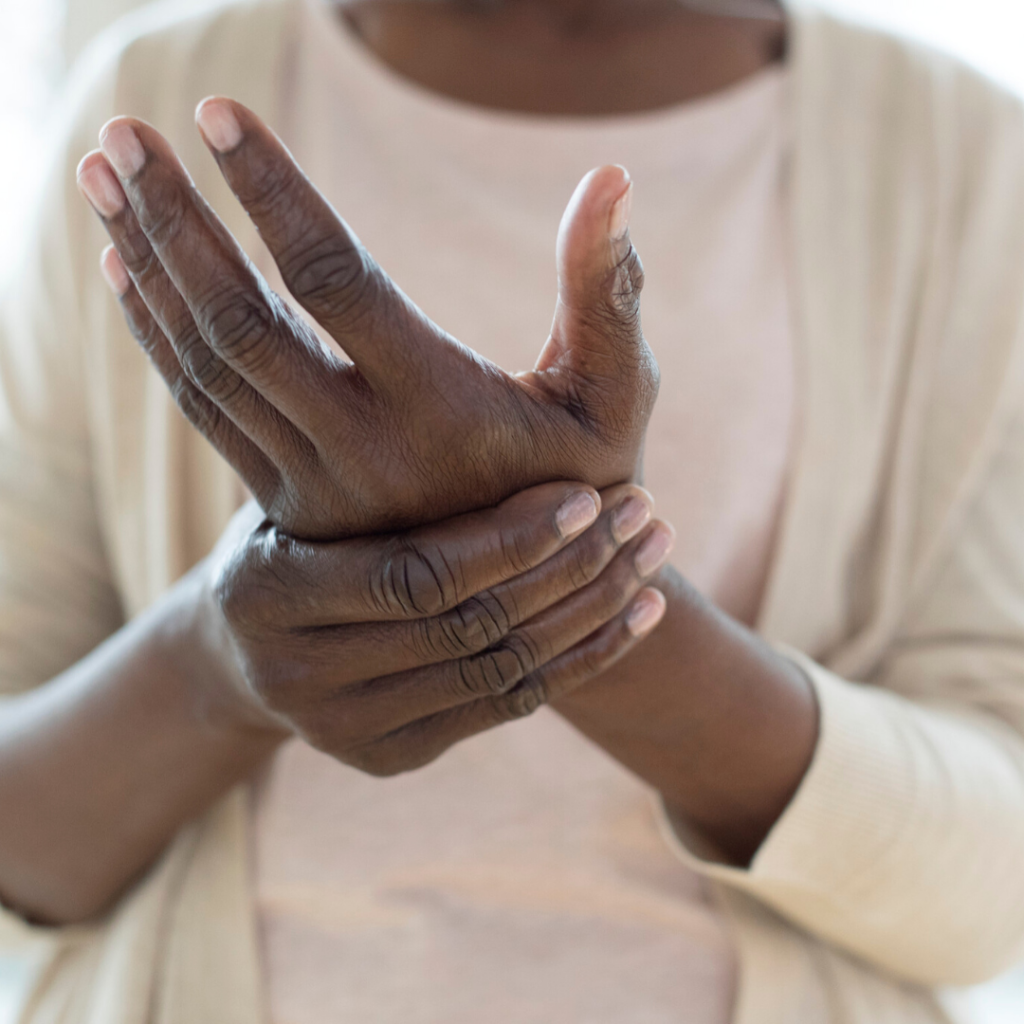
- Pain
- Stiffness
- Swelling
- Loss of movement
Fractures are broken down into four types; simple, Complex, comminuted, and compound. A simple fracture is when the broken bone is aligned and stable. A complex fracture is when the bone shifts or becomes displaced. A Comminuted fracture is when the bone is broken in more than one place. A Compound fracture is when the bone breaks through the skin. Each type of fracture can require different treatments than can range from pins, plates, or even surgery.
Arthritis
Arthritis is another common cause of hand pain. Arthritis happens when your joints lose the cartilage that lets them move smoothly. When the cartilage gets lost, that is when the pain and swelling begin. Arthritis occurs in the base of the thumb, middle joint of one or more fingers, or the end of the joint that is closest to the fingertips.
The most common form of arthritis is Osteoarthritis. Osteoarthritis happens with age or after some type of hand injury, such as a fracture. Symptoms may include
- Pain
- Swelling
- Stiffness
- Weakness in the hand
Depending on the severity of arthritis, are various treatment options that include anti-inflammatory medication, hand splints, heat, or physical therapy.
Trigger Finger
A Trigger finger happens when the finger or thumb locks in a bent position and can be painful for the finger or thumb when bent or straightened. Trigger fingers develop when the flexor tendon that controls the movement of the fingers and thumb becomes irritated. When this happens, it prevents the tendons’ movement, and the tendon will become stuck when you try to move your finger. There has not been an exact cause as to why it occurs, but it has been found that you are more likely to develop this condition if you have rheumatoid arthritis, gout, or diabetes.
If you are experiencing any of these conditions or symptoms, visit East End Occupational Therapy to discuss Amityville’s hand therapy.
What Hand Injuries Require Surgery?
Surgery can often be required for hand injuries. The majority of the time, if all other treatment options fail, surgery is the next option. For many of the hand injuries listed above, surgery becomes an option if you are still experiencing pain after trying other treatments such as physical therapy, splints, anti-inflammatory medications, and cortisone shots.

Doctors may suggest surgery for those with carpal tunnel if their symptoms go on for long periods because it is likely that your condition will get worse over time. Once you have tried treatments like wearing a brace, cortisone shots, and anti-inflammatory medications and you are still finding it hard to grip or grasp objects along with pain and numbness, surgery may be the next option.
For hand injuries like a fracture, surgery may be an option for more complicated fractures like complex, comminuted, and compound fractures. These fractures tend to be more complicated where the bone may shift and move out of place. In cases of serious fractures like these, this is when surgery is needed to add pins, plates, or screws to hold the bone together to ensure proper healing. Once the surgery is done, it is most often recommended to go hand therapy to increase the recovery process. If fractures are not taken care of properly, it can lead to arthritis down the road. This is why you should take advantage of our hand therapy here in Amityville to ensure proper care after surgery.
If you are still experiencing issues from a trigger finger after treatment, surgery may also be recommended. Surgery is used to release the A1 pulley at the base of your trigger finger to use the tendon much more efficiently. If your trigger finger is locked before your surgery, you must come to see our hand therapist here in Amityville to get the trigger finger released. Once the surgery is complete, you will notice that you’re able to use your finger easier right after surgery. Depending on your condition, it can generally take up to 4 to 6 months to eliminate any pain or stiffness.
What Are Some Useful Hand Exercises?
When you are not doing hand therapy in Amityville, it is important to also do some exercises at home to help the recovery process. Doing hand exercises helps increase flexibility and lower the risk of injury. Stretches are often used to decrease pain or prevent any injuries in the future. It is important to remember that if any of these stretches become unbearably painful and stiff to stop and consult with one of our hand therapists here in Amityville. Before starting any new exercise, it is important to consult a doctor to prevent any further injury to the hand. If you are experiencing discomfort or pain, use a heating pad or soak hands in warm water for 5 to 10 minutes to release the tension. Some of the hand and finger exercises you can do are
Make a fist
These simple stretching exercises can help strengthen and increase your range of motion. To start you, you must make a fist hold for 30 to 60 seconds and then release by spreading your fingers. Repeat this stretch on both hands at least four times a day.
Finger Stretch
This stretch helps with pain relief and range of motion within the hands. To start, you must place your hands on a flat surface and straighten your fingers as flat as you can. Hold for 30 to 60 seconds and then release. Repeat this exercise on each hand four times.
Claw Stretch
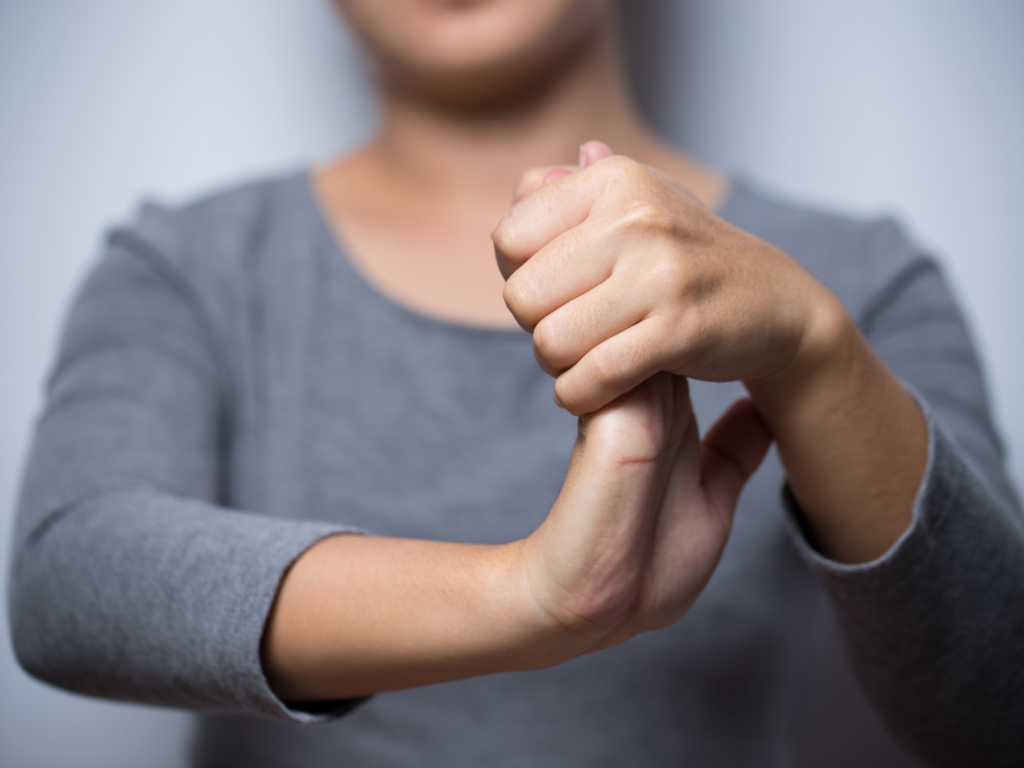
This stretch works to help improve your range of motion in your fingers. Start by holding out your hand in front of you with your palms facing you. Then bend your fingertips down to touch the base of the finger joints. During this exercise, your hand will look like a claw. Hold for 30 to 60 seconds and repeat four times on each hand.
Desk Press
This exercise is used to build strength in the muscles in your wrist to your inner elbows. To start, sit down, place your palms face up under the desk or table, and press upwards against the bottom of the desk. Hold for 5 to 10 seconds.
Grip Strengthener
This exercise is often used to help you open doorknobs and hold things without dropping them. To start, hold a softball in the palm of your hands and squeeze it as hard as you can. Hold for a few seconds and release. Repeat this exercise 10 to 15 times on each hand. This exercise should be done two to three times a week, with a 48 hour rest period between sessions.
Pinch Strengthener
This exercise helps you with the muscle strength of your fingers and thumbs. To start, you will pinch a soft foam ball between the tips of your fingers and thumb. Hold for 30 to 60 seconds and repeat 10 to 15 times on both hands. This exercise should be done two to three times a week, with a 48 hour rest period between sessions.
Finger Lift
This exercise is used to increase the range of motion and flexibility within your finger. To start, place your hands flat with palms facing down on a flat surface. Then, gently begin lifting one finger at a time and then lowering it. Repeat 8 to 12 times on each hand.
Thumb Extension
This exercise helps strengthen the muscles of your thumb and can help you grab and lift heavy objects. To start, put your hand’s palm facing down on a table and wrap a rubber band on your hand at the base of your joints. Then you will gently move your thumb away from your fingers as far as you can and hold for 30 to 60 seconds. Repeat on both hands 10 to 15 times. This exercise should be done two to three times a week with a 48 hour rest period in between sessions.
Thumb Touch
This exercise helps increase the range of motion within your thumbs. To start, hold your hand out in front of you and make sure your wrist is straight. Doing one at a time, touch your thumb to the other four fingertips making an “o” shape. Hold for 30-60 seconds and repeat four times on each hand.
Thumb Stretches
To start, hold out your hand with palms facing you and bend the thumb’s tip down towards the base of the index finger. Hold this for 30 to 60 seconds. Repeat and release at least four times.
East End Occupational Therapy – Hand therapy in Amityville
If you have suffered a hand injury and you are searching for dependable and knowledgeable Hand Therapy in Amityville don’t hesitate to contact East End Occupational Therapy. Our staff understands the complexities of hand injuries and we want to help you get your strength. Hand injuries can be debilitating so don’t let them stop you for long.! We will provide you with a care plan to properly rehabilitate your injury and a dedicated staff who wants to help you achieve your goals of recovery. Contact us today!
